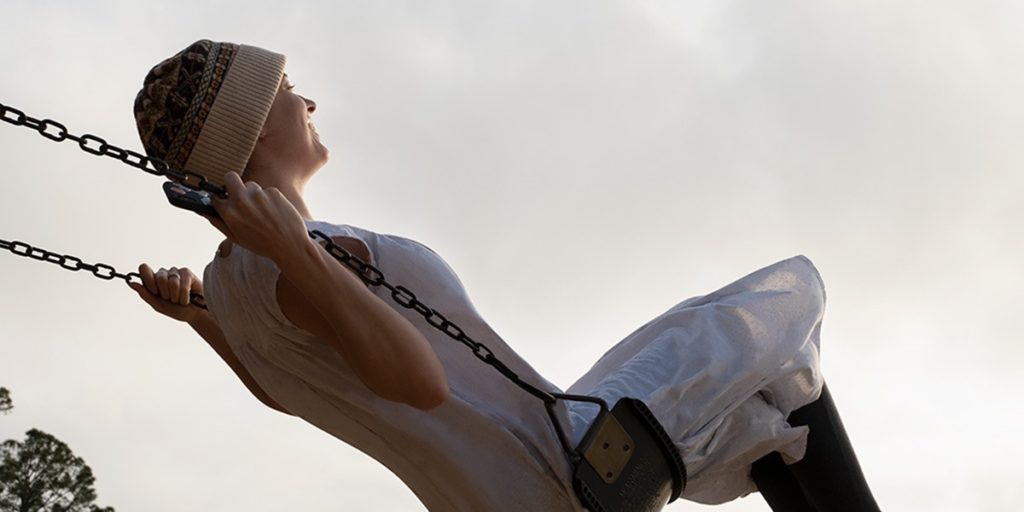Gabriela Cowperthwaite is a Brazilian American filmmaker who rose to prominence with the release of her 2013 film “Blackfish,” which premiered at the 2013 Sundance Film Festival and was nominated for a BAFTA for Best Documentary. Her follow up film, “Megan Leavey” marked her narrative directorial debut. Cowperthwaite has also had a successful career as a commercial director, and her feature documentary “City Lax: An Urban Lacrosse Story” premiered on ESPN in 2010.
“The Friend” will premiere at the 2019 Toronto International Film Festival on September 6.
W&H: Describe the film for us in your own words.
GC: Based on a true story, “The Friend” is about a husband who welcomes the help of the couple’s best friend when his wife becomes terminally ill.
W&H: What drew you to this story?
GC: I felt it was such a unique way into a story about pain and loss. We hear so many stories about pain through the one experiencing it, but rarely do you get a chance to hear stories where the focus is on the anchor, the port in the storm, the one thing that keeps people tethered in their darkest days.
W&H: What do you want people to think about when they are leaving the theater?
GC: That night, I want people to hold their loved ones close. The next day, I want them to wake up and call a friend they haven’t been in touch with for a while.
W&H: What was the biggest challenge in making the film?
GC: It’s a small film but I wanted it to feel like a big film. We, like all independent films, had limited resources so the days were long, and there was no margin of error. Also, I knew the film I wanted to make and the tone I wanted to strike. But that was very difficult to communicate when you can’t point to another movie to compare yourself to. So I sort of had to ask for everyone’s blind faith.
Finally, coming from documentaries, there’s always the aim to do right by the real people behind the story. You are asking them to love a facsimile of their lives, and you’re never sure how that will turn out.
W&H: How did you get your film funded? Share some insights into how you got the film made.
GC: I, alongside the production company Scott Free, pitched it to Black Bear Pictures, and they offered to finance the film.
W&H: What inspired you to become a filmmaker?
GC: I’ve always been stirred by story but I don’t think I understood what it meant to be a filmmaker until much later. I grew up in Colorado and didn’t know a single person who was working in film. But I loved them. My brother and I filmed clay monsters annihilating each other with my dad’s Super 8 camera. I perused my mom’s psychoanalytic books so I could read about people and their foibles, their transgressions – clearly an early desire to understand story and character.
I ended up pursuing a graduate degree in Political Science at the University of Southern California, and one day decided to take a documentary class at the Film School. That was it for me.
W&H: What’s the best and worst advice you’ve received?
GC: Best advice: Never apologize if you have to leave work to tend to a sick kid.
Worst: “If it’s meant to be, it’ll happen.” My answer to that is a resounding nope! You have to make it happen. Art is never ever ever safe. You have to actively protect it, and guard your vision.
W&H: What advice do you have for other female directors?
GC: Replace “I’m sorry” with “thanks for your patience.”
Also, I think the answer to making art has more to do with listening, and less to do with suffering — although expect to be doing some of both.
W&H: Name your favorite woman-directed film and why.
GC: There are three: “Meek’s Cutoff” by Kelly Reichardt. It’s just so unapologetic and bold. When you find yourself watching a film that isn’t the least bit concerned with pleasing anyone, it makes for such a palpably real, beautiful experience.
“The Hurt Locker” by Kathryn Bigelow. She told a story that, at face value, could have focused on Hollywood-esque heroism and bravado. But she focused on human complexity and vulnerability. It was so much more badass as a result.
“The Rider” by Chloé Zhao. You just have to see it.
W&H: What differences have you noticed in the industry since the #MeToo and #TimesUp movements launched?
GC: I’ve noticed that considering me to direct something has become more of a serious conversation and less of a formality. I’ve noticed that a safe and respectful work environment is an enormous priority now, and am touched that some of the biggest enforcers of that environment are men.
I’ve noticed that some men still believe the movement is a threat either because they’re not truly listening or because they’ve benefited from how things used to be. And I’ve noticed that most men I’m in contact with are empowered by it, are good listeners or have become better listeners, and feel it’s long overdue.







